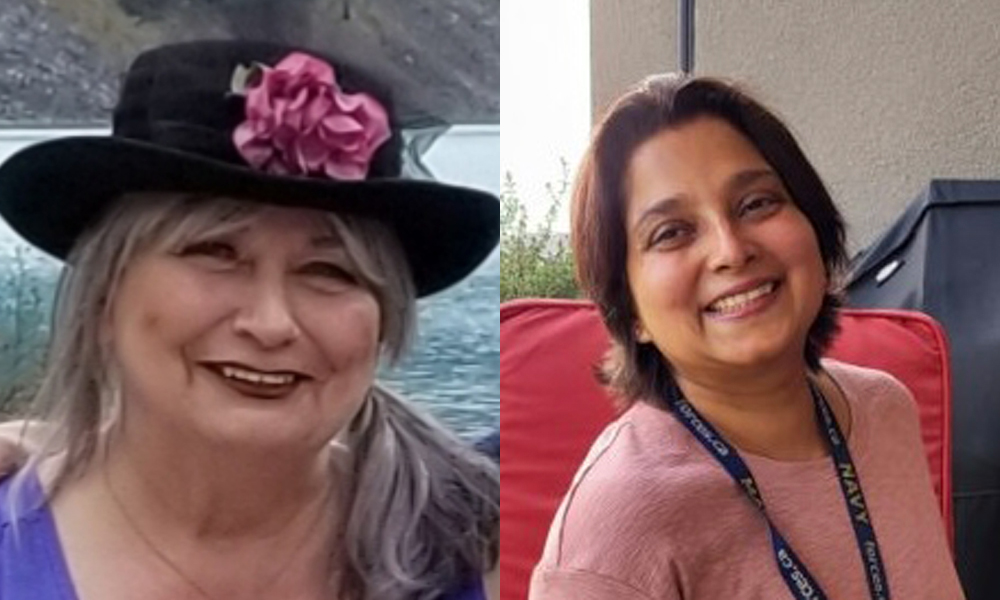AIDS Program South Saskatchewan’s (APSS) Direct Observed Therapy (DOT) program continues to break down barriers and support PLHIV and their community…
APSS has been serving the larger community of Regina and southern Saskatchewan in all HIV-related matters since 1985. The organization focuses on achieving optimal health for people living with HIV (PLHIV), and works to reduce the HIV infection rate in southern Saskatchewan, designed to foster connections for individuals affected by, living with, or at risk of HIV/AIDS or hepatitis C (HCV). Based on the latest national surveillance data from the Public Health Agency of Canada, Saskatchewan leads the provinces in reported HIV cases, with double the national average in 2020 (intravenous drug use is considered a primary driver of the rising incidence, along with sexual transmission).
Shiny Mary Varghese has been with APSS since 2015 and served as executive director since 2019; Morag Hurn, a client care coordinator, has worked at APSS since 2007. We sat down with the two to find out more about the organization.
How does APSS support PLHIV in Regina and other communities in southern Saskatchewan?
We offer HIV testing, client care assistance, and naloxone and opioid training, as well as harm reduction initiatives. We also provide transportation services to doctors’ offices and pharmacies, and organize nutrition, including food donations, for the community on a bi-weekly basis. In addition, our organization helps individuals pursuing counselling, connecting them with specialists who are trained in a range of areas from trauma to survivors of residential schools. Here at APSS, we like to act as a bridge, linking PLHIV to vital services like housing solutions or improved living conditions.
Tell us a bit about the work in direct observed therapy that APSS does (in part thanks to a recent grant from ViiV Healthcare). How did it come to be and what are some of the objectives of the program?
The DOT program had modest beginnings but has evolved significantly. It originated from a call from an infectious disease clinic, telling us about medication adherence challenges among individuals on HIV medications. After talking to social workers and therapists, we identified a significant gap in terms of medication uptake. To address this, the DOT program was introduced, monitoring PLHIV closely to ensure medication effectiveness and compliance. The monitoring involved with this program can vary widely depending on the individual’s needs; it can involve everything from watching them physically take their medication to driving them to the pharmacy to ensure they have a way to collect what they need and speak to their healthcare team.
How has the DOT program made an impact in the community?
It tackles the problem of distinguishing between medication ineffectiveness and adherence issues, acknowledging external factors like unstable housing and food security. Since it was launched in October of last year with a small group, the program has made a great impact in the community. Currently, we actively monitor four individuals on a daily basis; the team also checks in monthly with individuals capable of self-administering medication according to their prescription. The program has seen folks who began as ‘dailies’ and are now ‘monthlies.’ These folks are people we now check in with monthly to ensure they feel supported in their treatment adherence journey, as opposed to many who require daily support. We love seeing this progression and our work together coming to fruition.
What are some of DOT’s benefits in terms of adherence to treatment?
Engaging members of the community can be challenging, as many have backgrounds of mistrust due to experiences on the streets. In addition, stigma associated with HIV further contributes to these difficulties, but we work hard to break down these barriers and be a supportive network.
We know that Saskatchewan has the highest rates of HIV cases in the country. Are there any unique challenges you’ve encountered in the community or perspectives you’ve heard from the PLHIV community?
This is true, Saskatchewan does have the highest rates of HIV in the country. A challenge we continue to see is persistent stigma, specifically, and unfortunately, with healthcare professionals. To mitigate this, we aim to take a proactive approach, educating practising students before entering the field on the importance of providing HIV testing for folks who request it, regardless of their physical or mental appearance.
At APSS, we offer free self-test kits for HIV, and nurses are available on Thursdays and Fridays to provide additional medical care as needed. We also offer anonymity and don’t require names, which helps with the uptake of requesting a kit, as a fear factor surrounding testing still exists, acting as a barrier for some.
What is something you’re excited about for APSS and the work you’re doing?
The organization has grown a lot since 2015. APSS is not just focused on HIV anymore; we also have programs for opioids and the DOT program. We are excited to educate people about the risks of HIV and how to prevent it. We were among the first in Saskatchewan to start this kind of work. Our organization started with a group of five men who wanted to help their friends with HIV, even though hospitals weren’t supportive at the time. Now, we support 170 people living with HIV.
In your opinion, what is needed to reduce and eventually end HIV transmission?
We believe mandatory HIV testing should be implemented across the country. This would not only help reduce and eventually end HIV transmission but also break down the stigma barrier.
To learn more about APSS and its programs to support the HIV community in southern Saskatchewan, visit https://www.aidsprogramssouthsask.com/.
To learn more about ViiV Healthcare, visit www.viivhealthcare.ca.







POST A COMMENT